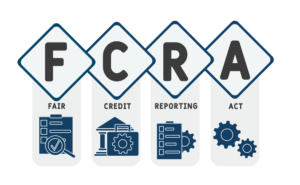Soft Vs Hard Credit Check: What Are Major the Differences
When a lender or creditor considers granting you a loan, they’ll do a credit check to see if they should lend you the money. But did you know that in other circumstances, such as a potential employer evaluating your credit record counts as a credit check? These credit checks or inquiries can be either a hard credit check or a soft credit check.
You’ve certainly heard a few myths about how credit inquiries might hurt your credit score. Consequently, you might be wondering how credit inquiries affect your credit score.
This article will look at both hard and soft inquiries and how they impact our credit scores.
What is a Credit Check?
An inquiry or a credit check is a record on your credit report informing who accessed your credit information and when. If the person or corporation making the request has lawful authority, the three main credit agencies can release your credit record. The only exception is if you’ve put a credit freeze on your information.
You have the right to know who has obtained your credit information under federal law. Each credit inquiry (also known as a credit check or a credit pull) must be recorded by a credit reporting agency in your credit file. As a rule, most credit inquiries or credit checks stay on your credit record for two years.
A lender can do two credit checks on your credit report — a hard credit check and a soft credit check.
Hard Credit Check
When a potential lender or creditor checks your credit report because you applied for additional credit, such as a credit card, loan for a car, a house loan, or an increase to an existing line of credit, it’s known as a hard credit check. It might also contain any other credit applications you’ve made, such as for a car loan, house, student loan, or credit card. The number of times hard credit checks have been done on your report is important to lenders and scoring agencies for a simple reason: An excessive number of hard inquiries may indicate higher credit risk.
A hard credit inquiry or a hard credit check can occur when one of the following situations occurs:
- Private Student Financing applications.
- Loan applications.
- Mortgage application.
- Credit Card application.
- Rental application.
- Refinancing student debts application.
Although, before you get too concerned about the impact a hard inquiry can have on your credit score, you should know that credit checks or inquiries only account for a small portion of your total credit score. According to FICO and VantageScore, inquiries and credit checks don’t significantly impact your credit ratings. Credit checks make up a small amount of your credit reports’ credit category, only 10%.
How Long Do Hard Credit Check Stay
Hard credit checks remain on your credit record for around two years, but after 12 months, the FICO score dismisses them.
Besides your credit score, if you have a lot of queries in a short amount of time, you’ll appear riskier to a potential lender. This is particularly problematic for individuals with a limited credit history. Spread out your credit applications, and don’t apply for more than two or three credit cards at once.
How To Avoid Hard Credit Check
Every time a hard credit check is made, a statement is placed on your credit report. When creditors see several recent credit inquiries on your credit record, they may get concerned.
Applying for numerous loans in a short period is one approach to prevent repeated credit inquiries. Multiple credit inquiries for the same sort of loan are counted as one inquiry by credit reporting companies since they know you’re likely to shop around for the best loan, so long as they’re done within a certain time frame.
There are also several credit score applications and websites that provide free educational scores. Educate yourself to make better credit judgments and prevent a hard credit check that isn’t necessary.
Soft Credit Check
When your credit is checked even though you haven’t applied for credit or a loan, this is known as a soft credit check. Insurance firms or possible landlords may review your credit record to gauge risk, and prospective employers may do background checks to verify your history.
When your credit report is checked, but you haven’t applied for credit or a loan, this is known as a soft credit check. Insurance firms or possible landlords may review your credit record to gauge risk, and prospective employers may do background checks to verify your history.
In contrast to a hard credit check, the person or company doing the soft credit check does not always need your consent.
Soft inquiries, unfortunately, might happen without your authorization owing to their nature. The good news is, with a few exceptions, soft inquiries are only seen on your credit report because they aren’t linked to any credit applications you’ve made yourself.
Soft credit checks from other insurance firms may be visible to insurance companies. Debt-settlement businesses you have permitted to read your report may share their findings with your present creditors.
Soft credit checks include the following:
- You examine your credit report on your own.
- As part of the preapproval process, a lender verifies your credit.
- Your current creditor does a credit check on you to keep track of your account.
- An employer pulls your credit for personnel screening.
- An insurance company performs a credit check to verify your eligibility or price for a new policy.
The most dangerous credit misconception is that monitoring your credit might hurt your ratings. You may access your credit report at any time, and it will have no impact on your credit ratings. Keep a check on your credit report without the fear of harming it.
Final Word
Keep in mind that there are a variety of additional credit checks that might seem like a hard or soft inquiry. Utility, cable, internet, and telephone companies, for example, will frequently check your credit.
If you’re unclear if a given request will be classed as a hard or soft credit inquiry, contact the firm, credit card issuer, or financial institution.
Your credit ratings have a significant impact on your financial situation. Take the effort to improve your credit ratings before asking for credit. If you have better credit, you may increase your chances of being accepted for your desired financial products at the best possible terms and pricing.
True, you should be concerned with all of the elements that affect your credit ratings. It’s crucial to remember that just because something might affect your score doesn’t imply it will.
In addition, as compared to other forms of information on your credit reports, credit inquiries have a short life. Credit inquiries only stay on your reports for almost 24 months. Furthermore, after a hard credit check has been conducted for 12 months, it will no longer be considered in your score. And to your advantage, soft credit doesn’t even appear on the credit report.
AnnualCreditReport.com allows you to obtain your credit report for free once a year. When you glance through your credit report, you’ll be able to discover if there have been any recent hard credit checks.
So don’t be concerned about someone obtaining your report and disseminating it throughout the world. Only those having a solid motive for looking at it would be allowed to do so.






